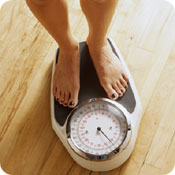 Eggs protect eyesight. Egg yolks contain a highly absorbable form of vision-protective carotenoids like lutein and zeaxanthin, which help to prevent age-related macular degeneration and cataracts. Studies published in the Journal of Nutrition showed that eggs increased blood levels of these nutrients without increasing cholesterol or triglyceride levels.
So how many eggs should you eat? Just because something is good for you doesn't always mean that more of it is necessarily better. In a 2007 study published in the journal Medical Science Monitor, no significant difference in cardiovascular diseases (like stroke and heart attack) were observed between people who consumed more than six eggs per week and those who consumed one or fewer eggs per week. So a couple of eggs a day, a few days a week, should be safe and health for most people.
Eggs protect eyesight. Egg yolks contain a highly absorbable form of vision-protective carotenoids like lutein and zeaxanthin, which help to prevent age-related macular degeneration and cataracts. Studies published in the Journal of Nutrition showed that eggs increased blood levels of these nutrients without increasing cholesterol or triglyceride levels.
So how many eggs should you eat? Just because something is good for you doesn't always mean that more of it is necessarily better. In a 2007 study published in the journal Medical Science Monitor, no significant difference in cardiovascular diseases (like stroke and heart attack) were observed between people who consumed more than six eggs per week and those who consumed one or fewer eggs per week. So a couple of eggs a day, a few days a week, should be safe and health for most people.
According to Becky Hand, a Licensed and Registered Dietitian for BabyFit, "One egg daily can easily be a part of a well-balanced, nutritious diet for healthy adults." An important exception is for diabetics, who experienced an increased risk of coronary artery disease when consuming greater than six eggs per week. If you have a medical condition such as heart disease or diabetes, Hand suggests checking with your physician (or dietitian) regarding egg consumption and dietary restrictions.
"Designer" Eggs: Are They Worth the Money? When you go to stock up on eggs, be prepared for an onslaught of choices. Beyond just white and brown, you'll see a whole new world of choices in the refrigerator case. Are these "designer" eggs worth the extra money? It depends on the designer.
- Cage Free, Free Range, Pastured, and Pasture Raised: You may feel like you're doing a good deed by purchasing eggs with one or more of these terms on the package. But in truth, these labels really don't mean a whole lot, as there are no rules or regulations about using these terms. If you want high quality eggs from humanely raised chickens, find a local producer who you trust. To find one, go to www.LocalHarvest.org, and enter "eggs" in the "Name/Description/Product" box, and your zip code in the "Where?" box. A list of farmers in your area will pop up, many of whom sell their eggs at local farmers markets.
- Certified Organic: They hens who lay these eggs are cage-free, have outdoor access, and eat a 100% organic and vegetarian diet that is free of antibiotics and pesticides. Third-party auditors enforce these standards.
- Grade AA, A and B: Eggs in the US are classified according to quality and freshness standards established by the USDA. AA is the most superior in quality, followed by A and B.
- Omega-3 Enhanced eggs: When is an egg not just an egg? When it's engineered to contain Omega-3s. The hens that lay these eggs eat a diet rich in Omega-3s, which includes algae or flaxseed. The eggs they lay contain higher Omega-3 content but taste like regular eggs. These eggs may help contribute to your intake of essential fatty acids, but they don't contain enough to make up for a diet that is otherwise low in Omega-3s.
No matter what kind of eggs you choose to eat, be sure to follow proper handling and preparation guidelines to ensure that your eggs are safe to eat. Raw or improperly handled eggs can be a source of disease.
- Avoid raw eggs, and foods made with raw eggs (Caesar dressing, homemade mayonnaise, eggnog, and cookie dough). These foods are safe if a pasteurized egg product is used.
- Check the carton to be sure that the eggs you are buying are clean and free of cracks.
- Store eggs in the coldest part of the refrigerator (not in the door), and use within three to five weeks, or by the expiration date on the carton. Hardboiled eggs should also be stored in the refrigerator and used within one week.
- When cooking with eggs, don't leave the carton on the counter during prep time. Take out the eggs you will use and return the carton to the refrigerator.
- Wash all surfaces, cooking utensils, and skin with warm, soapy water before and after handling eggs.
- Cook eggs until yolks are firm.
- Cook egg-containing dishes to at least 160 degrees Fahrenheit to destroy any bacteria safely.
Give yourself a break! Poached, scrambled, baked or fried-you can rely on the inexpensive and high-quality protein of eggs as part of a varied, healthy diet. "Do be careful with whom your eggs hang out," says Hand. "Bacon, sausage, and high-fat cheeses can be troublesome characters!"
This article has been reviewed and approved by Becky Hand, Licensed and Registered Dietitian.
|







Member Comments